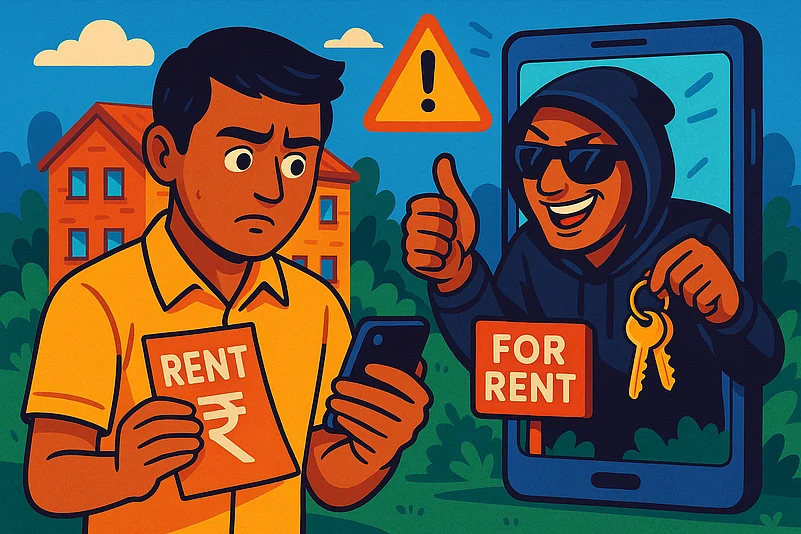
Summary of this article
Rental scams are rising as student migration sees steep rise
Most common scams include fake listings, asking for unreasonable deposits etc.
Make sure to read the rental agreement before signing
Every year, thousands of students move to new cities in search of higher education, internships, or coaching. According to the Census 2011, 5.40 million students migrated between Indian states for education, up from 3.32 million in 2001, with a marked rise in female migration. These internal movements place students in a very shaky position regarding rental fraud, especially when they come with zero local contacts.
Identifying Fraudulent Listings
One of the most common scams involves fake PG listings. A recent news report stated that at least eight complaints have been received in three weeks in Pune from parents whose children paid in advance for non-existent paying-guest facilities. In one case, a parent was asked to pay Rs 10,000 as a booking charge and Rs 4,000 for an ID card or room key, as well as additional charges for mess services. When they came to Pune, they found it was only a residential block.
Scammers usually use attractive photos in listings, call very infrequently, reject video calls, and ask for room-securing advance payments. Using reverse-image searches for photos and comparing neighbourhood rents can help students flag suspicious ads.
Owner's Credential Verification
Verification of the identity of the person with whom one is dealing is very important. Ask for government ID, proof of ownership, utility bills, and make sure the name on the receipts matches. One should personally visit the flat, meet the landlord, and, if there is a broker involved, ask for his license or past references.
A news report published in May 2023 stated that, in Bengaluru, one tenant had left his flat in immaculate condition; he had cleaned, repainted one corner, and replaced the bulbs. But the landlord deducted half of his deposit for minor damages and stopped picking up his calls.
Another case reported in October 2025 mentioned a tenant who received Rs 2.6 lakh from his landlord after the latter tried to deduct huge amounts for cleaning, painting, and minor repairs. These cases highlight the importance of credibility checks on the landlord and the maintenance of property and payment records.
Understanding Deposits and Hidden Charges
Security deposits remain one of the primary reasons for disputes. Fraudsters also ask for very high deposits or require full advance payments. In the case reported by India Today in Bengaluru, the landlord tried to deduct Rs 40,000 for painting and Rs 7,000 for bathroom cleaning, among many other wear and tear claims, totalling Rs 77,000.
The tenant conducted a background check, escalated the issue through proper channels, and ultimately managed to recover the full deposit of Rs 2.6 lakh. These stories show how easily the damage claim can be exaggerated or fabricated in order to withhold deposits.
Using Safe Payment Methods
Digital payments are widely adopted but with associated risks. Always transfer to a verified account in the landlord's or broker’s name; don't make payments via suspicious links on messaging apps. Take records of screenshots, receipts, and bank transfer details. Try to insist on partial payments whenever possible and seek written acknowledgement of every transaction. This will create a paper trail that one can fall back upon in case disputes arise.
Making the Rental Agreement Work for You
You should get a written rental agreement. Ensure it specifically states the rent, deposit, notice period, who shall be responsible for repairs, and how deductions are allowed to be made. Wherever possible, register the agreement under the local tenancy laws for stronger legal backing. Also, a handover checklist at the time of move-in and move-out, stating the condition of every room, fixture, and wall with photos or video, can help counter unfair damage or cleaning charges later.
Precautionary Strategies for Students
Students should always check listings through image checks and comparisons of market rates. Meet the landlord in person prior to sending money. Deposits should be paid after a property inspection with written receipts. Document the condition of the property with photos or videos to prevent false deductions.
Scammers know that first-time renters are desperate for accommodation and lack local networks. Accordingly, the mix of vigilance, documentation, safe payments, and a clear rental agreement protects students from losing money.











